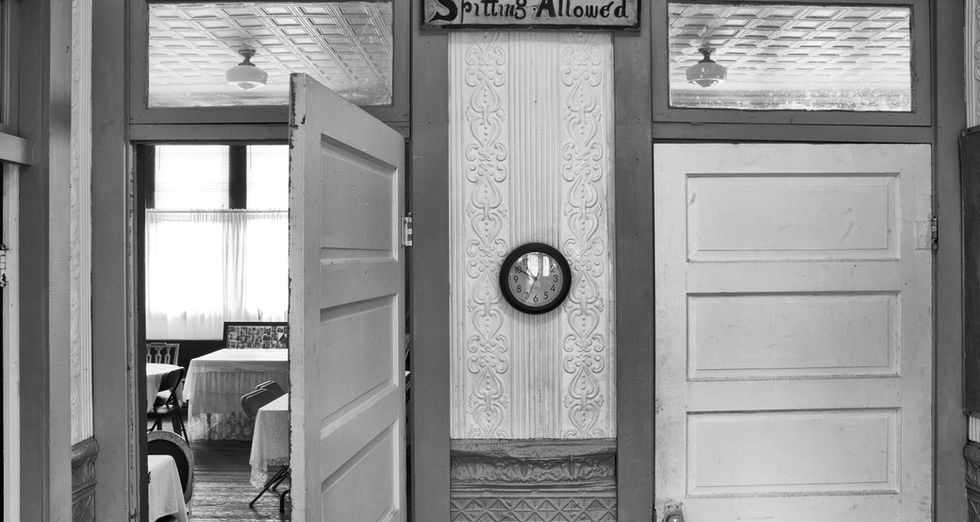
Courtesy of
Andrew Feiler
Unity and Diversity
Andrew Feiler
Highly Commended
Andrew Feiler is a photographer, author, and fifth generation Georgian. Having grown up Jewish in Savannah, he has been shaped by the complexities of the American South. Feiler has long been active in civic life. He has helped create over a dozen community initiatives, serves on multiple not-for-profit boards, and is an advisor to numerous political leaders. His art is an extension of his civic values.
Feiler was named "Book Photographer of the Year” by Prix de la Photographie Paris in 2022 and "A Better Life for Their Children" won the gold medal for documentary book. The book also won the International Photography Awards 2022 first place for documentary book. It has been honored with an Eric Hoffer Award and a Book, Jacket, and Journal Award from Association of University Presses. Photolucida named Feiler’s Rosenwald school images a 2020 Top 50 portfolio and Photoville selected them for the 2020 Fence, an multi-city exhibition displayed internationally.
Feiler’s photographs have been instrumental in the campaign to create a US national historical park and inspired the composition of a symphony. His work has been featured in the Wall Street Journal, Smithsonian, L’Œil de la Photographie, and many other publications. Solo exhibitions of his work have been at such venues as the National Civil Rights Museum at the Lorraine Motel in Memphis and National Center for Civil and Human Rights in Atlanta. His photographs are in public and private collections including that of the Smithsonian Institution’s National Museum of African American History and Culture.
A Better Life for Their Children: Julius Rosenwald, Booker T. Washington, and the 4,978 Schools that Changed America
Maryland, Virginia, North Carolina, South Carolina, Florida, Georgia, Tennessee, Kentucky, Alabama, Mississippi, Louisiana, Texas, Oklahoma, Arkansas, and Missouri, New York, Illinois, and Washington, DC.
2017 - 2019
Born in America to Jewish immigrants, Julius Rosenwald rose to lead retailer Sears, Roebuck & Company and turn it into the world’s largest retailer of its era. Born into slavery, Booker T. Washington became an educator and was the founding principal of the historically Black college Tuskegee Institute.
In 1912 the two men launched an ambitious program to partner with black communities across the segregated South to build public schools for African American children. This watershed moment in the history of philanthropy—one of the earliest collaborations between Jews and African Americans—drove dramatic improvement in African American educational attainment and fostered the generation who became the leaders and foot soldiers of the civil rights movement.
Of the original 4,978 Rosenwald schools, about five hundred survive. In creating a photographic account of the program, Andrew Feiler drove 25,000 miles and photographed 105 schools in all fifteen program states. The work includes interiors and exteriors, schools restored and yet-to-be restored, and portraits of people with compelling connections to these schools. The book of this work was recently published by the University of Georgia Press. The book’s introduction is by the late Congressman John Lewis, a Rosenwald school alum. Selected images of this work are now in the permanent collect of the Smithsonian Institutions National Museum of African American History and Culture. The exhibition of photographic prints of this work premiered in 2021 at the National Center for Civil and Human Rights in Atlanta and is now on tour.












